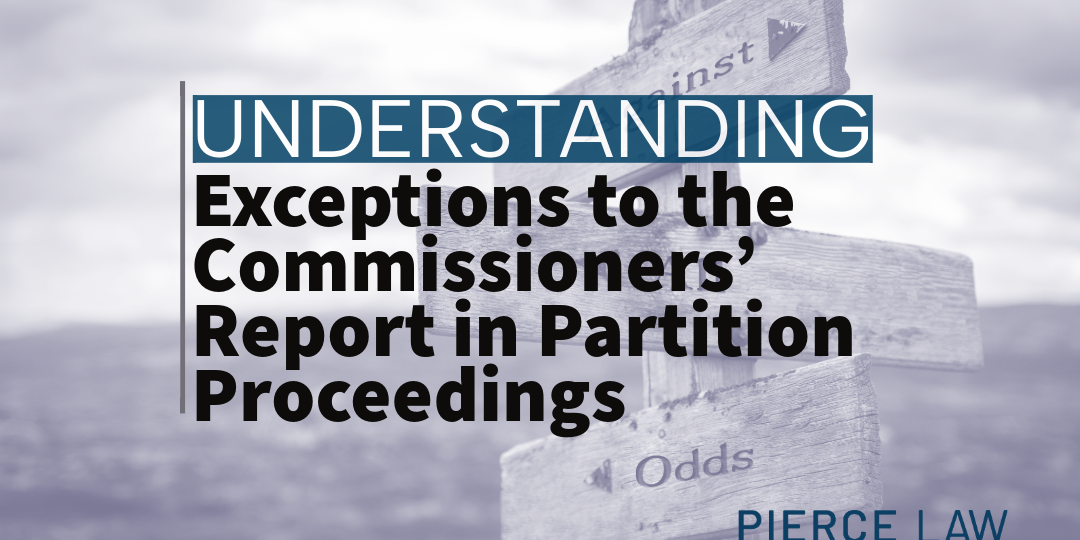Exceptions to the Commissioners’ Report in Partition Proceedings
1. Detailed Answer
When co-owners ask a court to divide real property in North Carolina, the judge appoints commissioners to survey, value, and recommend how to split or sell the land. Their findings appear in a Commissioners’ Report. Parties who disagree with any part of that report may file exceptions to challenge errors before the court adopts the recommendation.
Statutory Framework
The requirements for partition by commissioners appear in Chapter 46 of the North Carolina General Statutes. After commissioners file their report with the clerk, the court issues an order that the report may be confirmed if no exceptions arise within a fixed period. See N.C.G.S. § 46-26.
Timing for Exceptions
Under North Carolina practice, you must serve your written exceptions no later than ten days after the report becomes confirmable by law. If you miss that deadline, you waive your right to object and the court may confirm the report as submitted.
Grounds for Filing Exceptions
You can carve out exceptions for any portion of the report you believe contains:
- Factual errors in acreage, boundaries, or valuation
- Misconduct or conflicts by a commissioner
- Failure to follow statutory guidelines under N.C.G.S. § 46-24, which governs how commissioners must view and value the land
- Mathematical mistakes in allocating sale proceeds or parcels
Procedure
To bring exceptions, you must:
- Prepare a written statement identifying each challenged finding.
- File and serve the exceptions on all parties and the clerk within ten days.
- Attend the hearing the court schedules to consider the exceptions.
The judge will review the record, hear arguments, and decide whether to modify the report. After resolving exceptions, the court confirms the final plan for partition or sale.
Practical Tips
If you believe a report misrepresents the size, value, or division method, act quickly. Obtaining survey evidence or appraisals before the deadline will strengthen your position. Your attorney can draft precise exceptions and present them effectively at the hearing.
2. Key Points at a Glance
- Commissioners’ Reports recommend how to divide or sell land in a partition.
- You must file exceptions within ten days after the report becomes confirmable.
- Grounds include factual mistakes, procedural errors, or commissioner misconduct.
- File and serve written exceptions on all parties and the clerk.
- The court holds a hearing to decide whether to modify or confirm the report.


